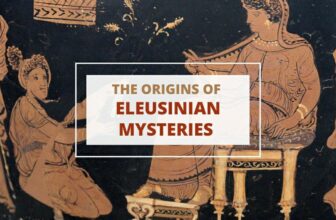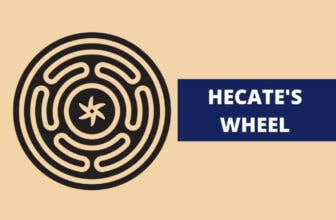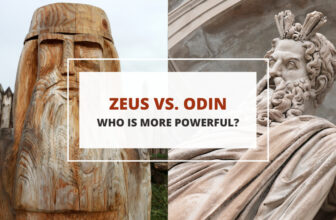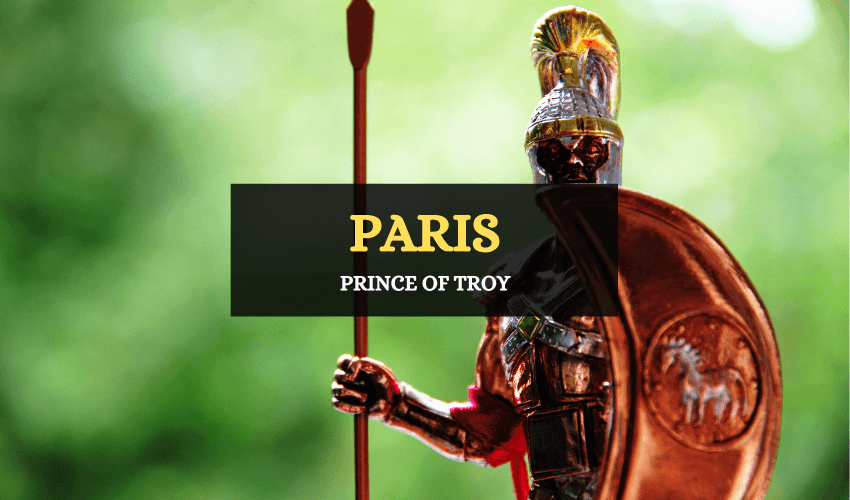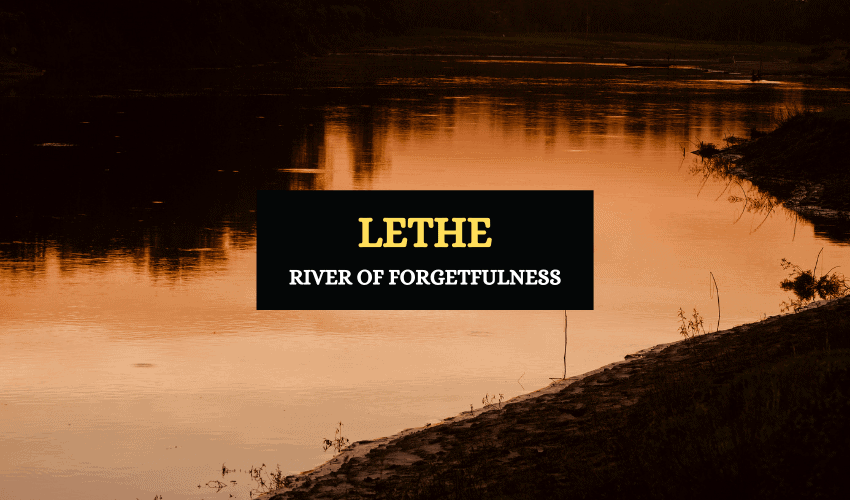
Table of Contents
In Greek mythology, Lethe was one of the five rivers of the Underworld. The word ‘lethe’ is Greek for forgetfulness, oblivion or concealment which is what the river was famous for. Lethe was also the name of the personified spirit of oblivion and forgetfulness, often connected with the River Lethe.
The River Lethe
The River Lethe flowed across the plain of Lethe, passing around Hypnos’, cave. Because of this, Lethe is strongly associated with the Greek god of sleep. As it flowed around the cave, it made soft, murmuring sounds that made anyone who heard it feel sleepy.
The River also passed straight through the Underworld and it’s said that all who drank the waters of the Lethe experienced forgetfulness. They would forget everything from their past.
Some say that the River bordered the Elysian Fields, the final resting place of virtuous and heroic souls in Greek mythology and religion. These souls drank from the River to forget about their previous existence so that they could get ready for their reincarnation. According to some writers, every soul had to drink from the river without being given the chance to decide whether they wanted to or not. Without drinking from the river, transmigration of the soul couldn’t take place.
The Five Rivers of the Underworld
While the River Lethe is one of the most popular rivers of the underworld, there are others. In Greek myth, the underworld was surrounded by five rivers. These include:
- Acheron – river of woe
- Cocytus – river of lamentation
- Phlegethon – river of fire
- Lethe – river of forgetfulness
- Styx – river of unbreakable oath
The Myth of Er
Er had died while fighting in battle. About ten days after the battle, all the dead bodies were collected. Yet Er’s body hadn’t decomposed at all. He had traveled to the afterlife with several other souls from battle and came to a strange place with four entrances. One set of entrances went into the sky and then out while the other set went into the ground and back out again.
There were some judges directing the souls, sending the virtuous ones up to the sky and the immoral ones downward. When they saw Er, the judges told him to watch what was happening and report back what he’d seen.
Seven days later, Er journeyed with the other souls to another strange place with a rainbow in the sky. Here, they were all given a ticket with a number on it and when their number was called out, they had to go forward to choose their next life. Er noticed that they chose an existence that was completely antithetical to their previous life.
Er and the rest of the souls then traveled to the place where the River Lethe flowed, the Plane of Oblivion. Everyone had to drink from the river except for Er. He was allowed to only watch as each soul drank of the water, forgot their previous life and set off on a new journey. Er couldn’t recall what happened then but the next instant, he came back to life, waking up on the top of his funeral pyre and was able to recall everything that had happened in the afterlife.
Since he hadn’t drunk the water of the Lethe, he still had all his memories including those of the Underworld.
The Myth of Er can be found in the concluding sections of Plato’s Republic, as a legend with a moral tale. Socrates had related this story to demonstrate that a person’s choices will impact their afterlife, and that those who are falsely-pious will reveal themselves and be justly punished.
Aethalides and the River Lethe
The River Lethe was unable to remove the memories of only one figure in Greek mythology and that was Aethalides, a member of the Argonauts and the mortal son of the messenger god, Hermes. He drank the waters of Lethe and was then reincarnated as Hermotius, Euphorbus, Pyrrhus and Pythagoras, but he could still remember his past lives and all the knowledge he had gained in each of those incarnations. It seems Aethalides was gifted with an excellent, unfailing memory that even the Lethe couldn’t conquer.
Lethe vs. Mnemosyne
Religious teachings in Orphism introduced the existence of another important river that also ran through the Underworld. This river was called Mnemosyne, the river of memory, the exact opposite of the Lethe. The followers of Orphism were taught that they’d be given the choice to drink from once either of the two rivers, once they passed on to the afterlife.
The followers were told not to drink from the Lethe because it wiped out their memories. However, they were encouraged to drink from the Mnemosyne, which would give them excellent memory.
Orphics believed that the human soul is trapped in a body in the cycle of death and rebirth that never ends. They also believed that they could end their soul’s transmigration by living an ascetic life and this is why they chose not to drink from Lethe.
The Goddess Lethe
In Hesiod’s Theogony, Lethe is identified as the daughter of Eris (the goddess of strife) and sister to several famous gods and goddesses including Ponos, Limos, Algea, Makhai, Phonoi, Neikea and Horkos, to name a few. Her role was to overlook the River Lethe and those who drank from it.
Literary Influences
The River Lethe has appeared numerous times in popular culture since the time of ancient Greece.
- The famous Star Trek series makes a reference to the Lethe. One of the characters turns up emotionless and blank and was introduced as ‘Lethe’. This refers to her memories being wiped out by a neutral neutralizer and the title of this Episode was also ‘Lethe’.
- The river has been mentioned in several literary texts as well, such as in ancient Greek poems. Throughout history, it was a great influence to philosophers as well as poets and writers from the classic period such as Keats, Byron and Dante. It also influenced contemporary works by writers like Stephen King and Sylvia Plath.
- In C.S. Lewis’ The Great Divorce, he makes a reference to Lethe when he wrote: ‘A little like Lethe. When you’ve drunk of it, you forget forever all proprietorship in your own works’. Here, the Spirit describes what Heaven is like to an artist and tells him that he’ll soon forget all his work and his ownership.
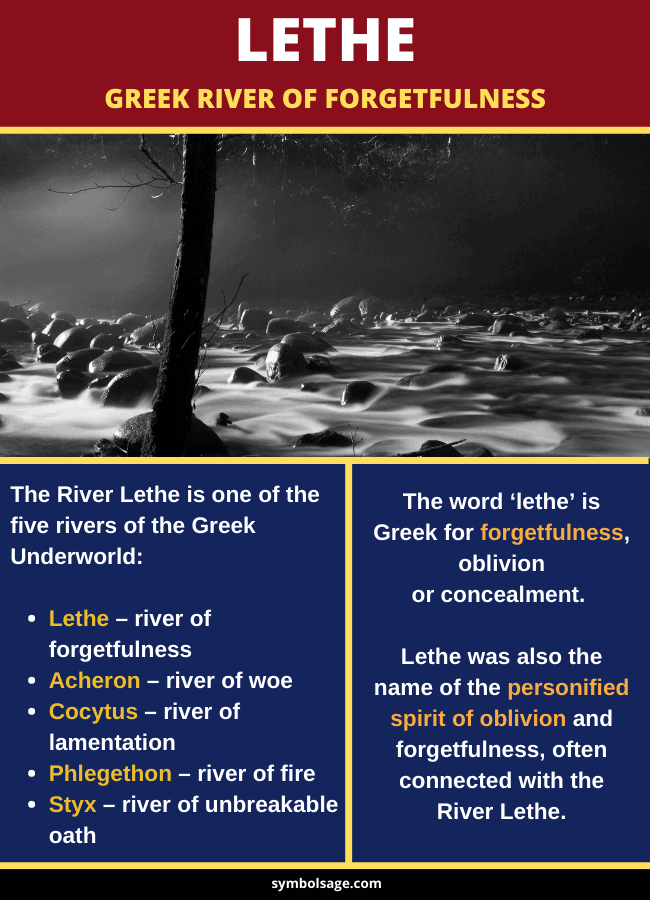
In Brief
Lethe has an unusual and interesting concept, especially since there’s a goddess associated with it. It’s treated as an important feature of the Underworld and features in many cultural references.




